All Pictures are of�Gaziano & Girling�shoes (and have nothing to do with the post, just for looks)
Not long ago I was able to peruse the internet in the hopes to see what was going on in the minds of others (in regards to shoes of course). There are a few forums that I scour through from time to time to read the gossip and get great pictures from. I happen to stumble across a thread that really made me realize something that I had obviously known about, but had not really put much thought to. This is the fact that 98% of the brands that I, or other people like me (for instance the forums), talk about are all ones that own their own factory (or are bespoke makers). Think about it. Who do I praise on here? G&G, Carmina, Edward Green, Corthay, John Lobb, Laszlo Vass, St. Crispins, J.M. Weston etc…. They all own their factories, which means that they control everything.
Now, this idea grabbed my attention because I was reading a thread about a brand that does not own their own factory, but makes good shoes, and other people were critiquing them and thus comparing them (in both price and quality) to other brands that did own their own factory. I realized that the idea of comparing a shoe brand that does not own their own factory, to one that does (within the same price-point) is like comparing an apple to an orange. Why? Well, allow me to explain. First off, when you own your own factory you control everything: cost, materials used, QC, channels of distribution, retail price (especially if you have your own store), etc.
This gives you a great advantage and inevitably leaves the decision to make a great or inferior product, entirely up to you (the factory owner). But when you don’t own your own factory, you are left at the disposal of the factory that is making your shoes. You can’t control the factory production cost, unless you were to supply them with all of your desired materials, and you can’t control the quality day in and day out, unless you were to spend a few months there while they were making your collection. Your retail price (to get the same product) will inevitably have to be higher, from a simple mathematical point of view. Let’s look at that below.
For example, let’s take Brand A (who owns their factory) and Brand B (who gets their shoes from Brand A). Let’s say that Brand A’s production cost is �50, their wholesale price is �125 and their retail price is �325. That means, if they sell their shoes in their own store they sell them for �325 and make �275 of profit/pair (for this simplistic scenario, let’s assume VAT does not exist). Not bad huh! Now, if they sell their shoes to another retailer, they sell them for �125 (make �75 profit/pair), and the retailer will sell them for �325 and make their x2.6 mark-up. Win-win.
NOW, let’s say that Brand B is small and has to sell his shoes to other retailers to start out. There is an industry retailer mark-up average of x2.5-x2.7, so let’s bear this in mind. That means, if Brand B gets his shoes from Brand A at �125 and wants to sell them to retailer X, he will have to add some money on top of that �125 wholesale price in order to make anything. Let’s say that he only adds �45 (which is a justified amount to stay in business) and that he sells them to retailer X for �170. So retailer X buys them, puts a x2.5 mark up and the shoes now retail at �425 (the same shoes that retails for �325 but now under a different Brand name).
That means because Brand B is a designer getting his shoes from Brand A (a factory owned brand), his shoes are inevitably going to be more expensive to get the same quality as Brand A. A smart purchaser will see this and unless Brand B is offering out-of-this-world design, will just buy Brand A. Therefore, in order to compete with Brand A, Brand B will have to find a factory that can make the same calibre of shoe at a lower production price, but try and maintain the same standard of quality. This is precisely why I did not get my shoes from England, because at the wholesale price they offer, my shoes made by them would retail in the Handgrade price-point, but would only be of Benchgrade caliber. Anyone who knows shoes, would therefore not have purchased my product. And this is why you cannot compare a brand that does not own their own factory to one who does, because the one that owns their factory, has far more control over the end product, in both price and quality and can always undercut even their own clients.
As all of the retail world is like this, from food, to clothing, to cars, to everything, it made me wonder how all of these people could be on this forum making these irrational comments, when in their own sector, they probably have the same issue. What’s even worse is when people start comparing factory made shoes to handmade shoes. That is just plain stupid as they are worlds apart, yet I see it all of the time. People if only we used a bit more common sense we would quite possibly be able to answer most of our own questions and understand these things without slagging off scenarios and simple facts of business that I am sure many of us are guilty of. This is business and unless you are too moaning about your toilet paper and the price difference what you probably don’t realize is that many of them are made in the same factory!
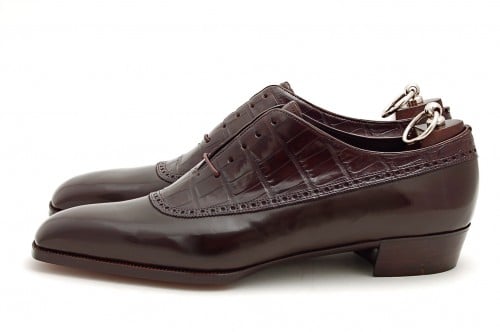 |
| Courtesy of�Leffot |

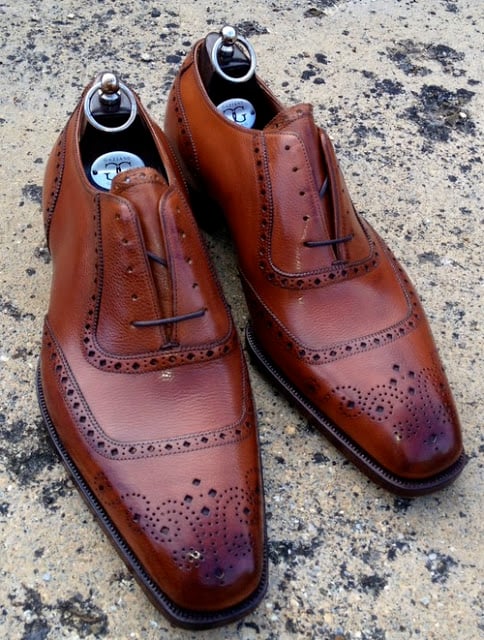
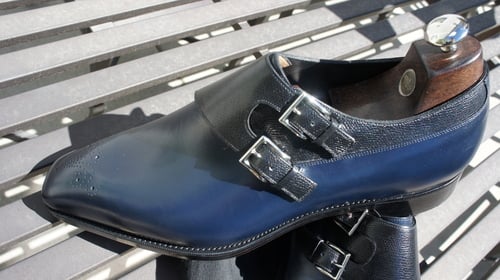
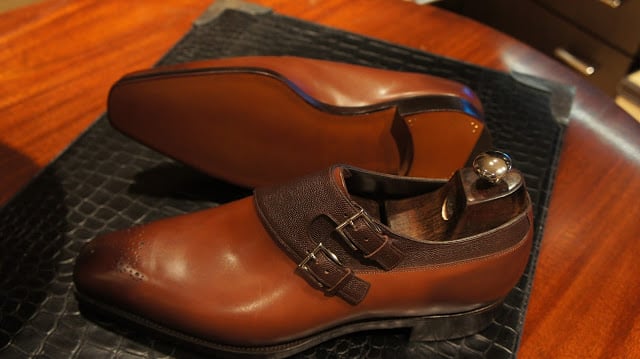
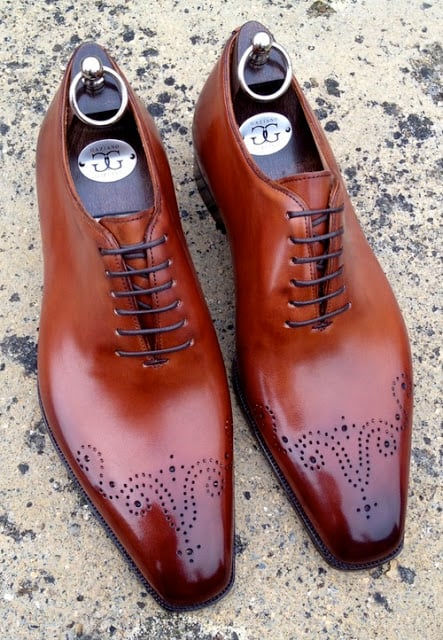
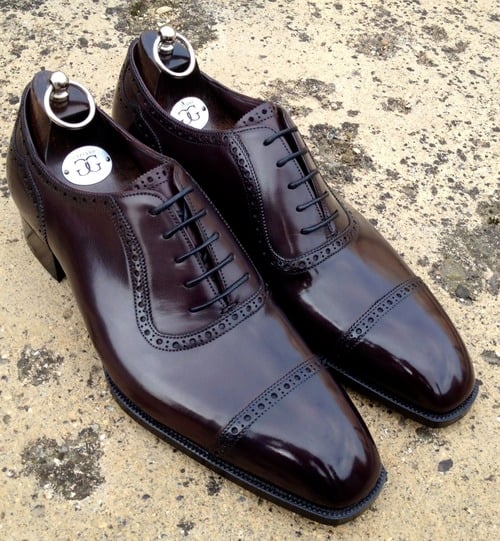
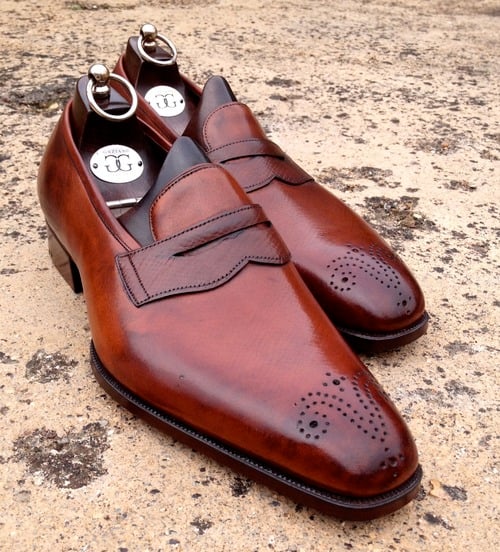


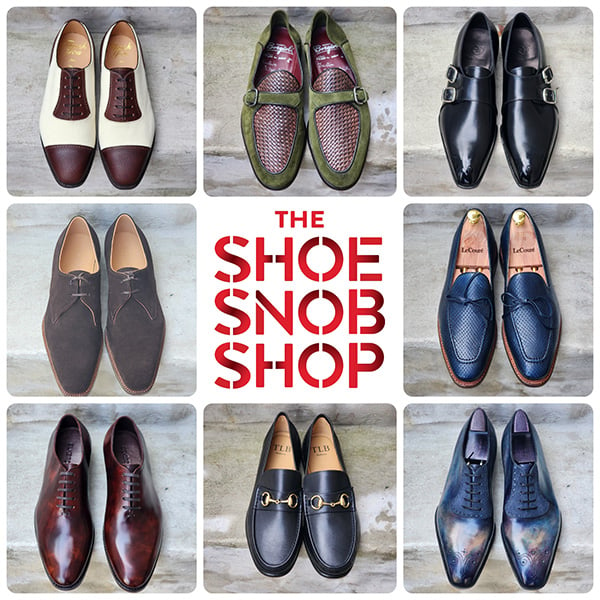
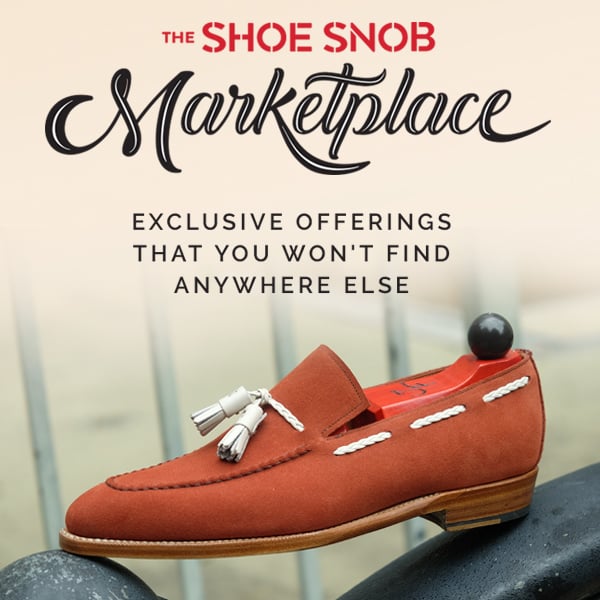
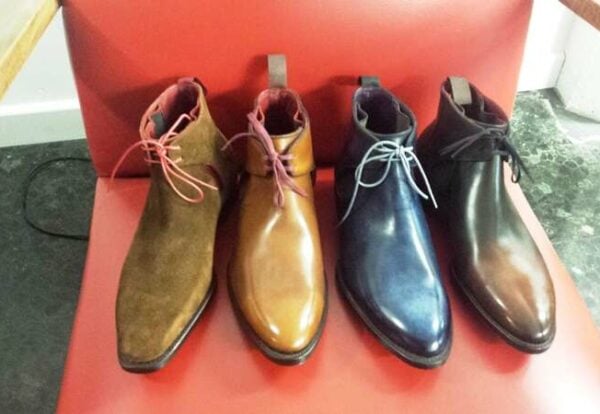
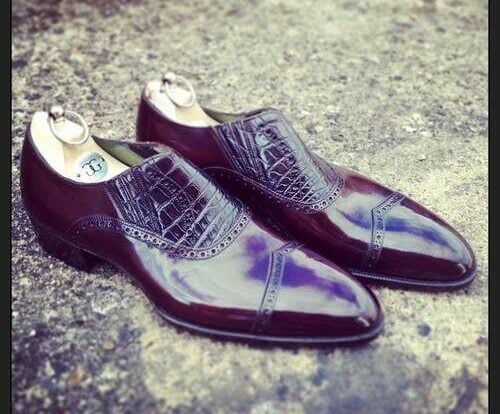
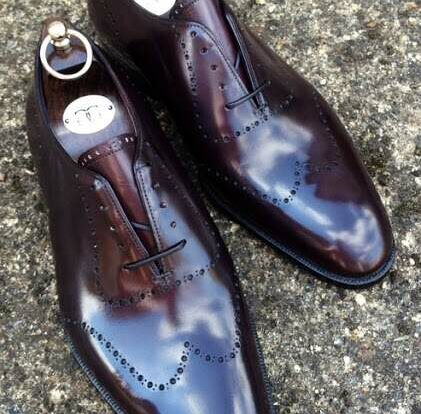
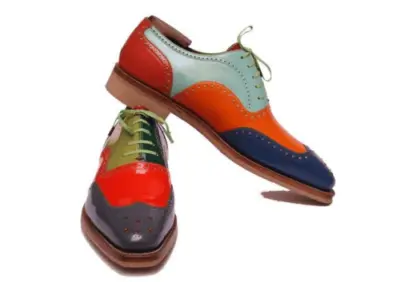
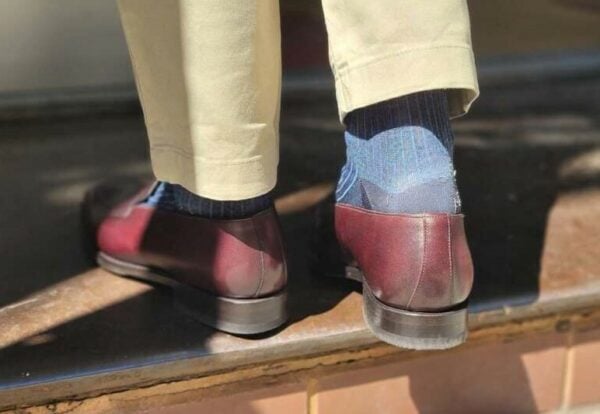
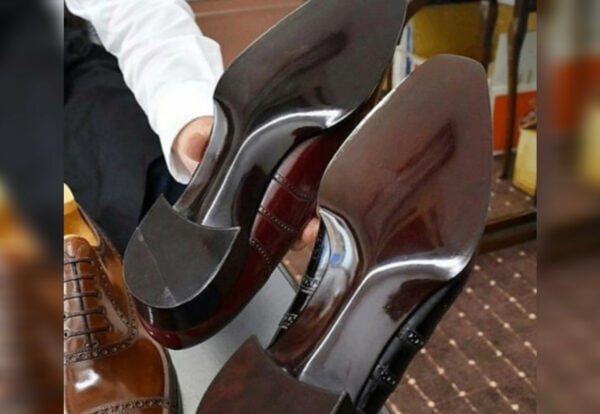
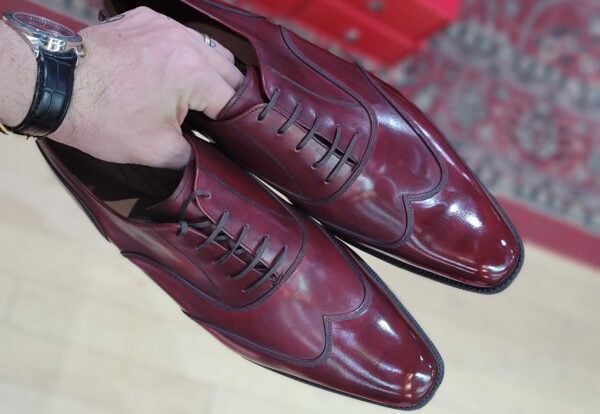
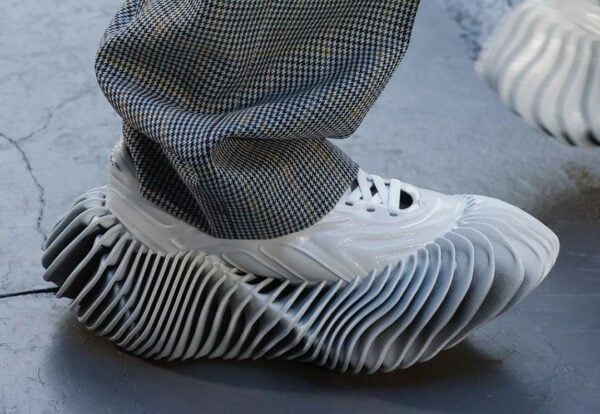
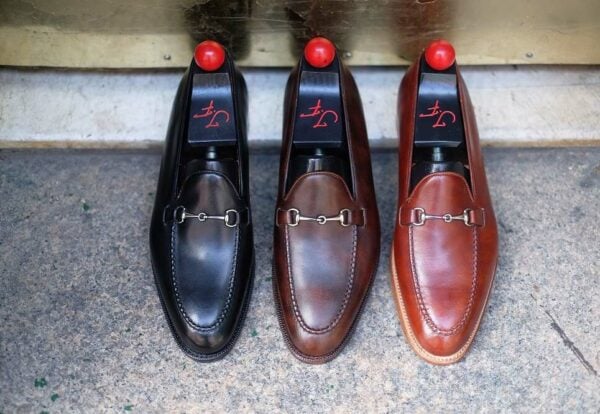
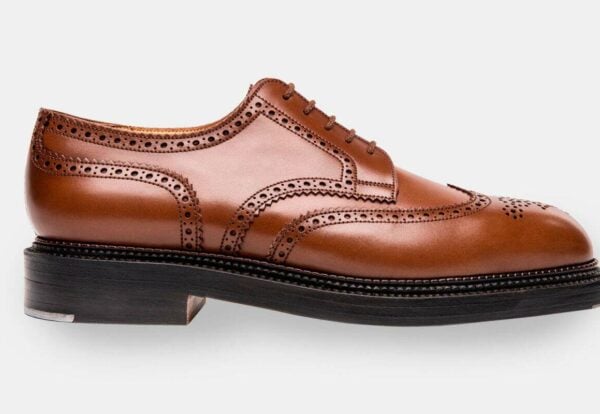
interesting read justin.
its notable the factory who manafactures their own shoes still charges �125 wholesale cost, regardless of whether it is to a retailer or to another brand such as yours. are these factories unwilling to reduce this wholesale cost in order to let you buy at a level which allows you to sell onto the retailer at a more competitive level? their production cost is �50 so theoretically they could sell to you at any level >�50 and still make money as long as they have the ability to expand output. by doing what you describe its almost like they are saying: fine we will aloow you to be a middleman but we will only sell to you at the level we sell on ourselves, therefore we allow you a profit of 0 (unless you can sell on at a greater than fair market price which in a competitive market is impossible as you would be uncompetitive, i take the point that this is not a perfect market as the shoes are different in some ways).
Anand
Justin,
this is a great post because it brings new light to old discussions. We shoe nerds can rant on and on about details, lasts, finishes and whathaveyou, but most of us lack inside information about the business side. Do keep up the good work, I’m sure your texts will not go unnoticed though comments may be rare.
Anand – Why would they care about a designer? It’s business, not sentimental. This is why designer shoes (aka a brand who does not own their own factory) are always more expensive.
It’s not that we get a profit of 0 but that we have to up our prices in order to re-sell them. This is the way that all industries work. Why do you think that all of the retailers that use C&J as their factory, have their prices slightly higher than C&J’s own branded shoes….For example, C&J handgrade is around �450, but that same C&J shoe branded by Cleverley is around �495…and that same shoe selling in America at Leather Soul will be circa $900 (�560 – �60 more expensive…that’s the wholesale mark-up).
Ville – Glad that you enjoyed the read Ville!! Thanks for sharing your thoughts.
-Justin
Cleverley’s RTW are made by C&J? I never knew that!
Never mind, Justin. Your oranges are way cheaper than G&G’s apples, and everything else is just sour grapes.
Alex B – Yea, C&J for the lower price ones and Edward Green for their Anthony Cleverley line. Good analogy!
-Justin
I have one investment pair of Brand A shoes and many shoes with good labels from your Brand B categories where apparel brands sell shoes to have their name on the whole look. I buy shoes because of italian made before I look at the brand. Mostly oxfords for a narrow long foot still wearing the one investment pair 22 years later. The lizard shows a patina of good shoes reminding me why we spend the money. They are my favorite pair but now I am looking for a new pair of chocolates and read your articles for wise decisions. I am waiting for Louis Leeman to make a special derby, in my dreams.
Hi Justin,
Should shoe designers like you could directly buy leather hides, insoles and outsoles (think mainly this 3 components) from the market for your own brand, wouldn´t the OEM reduce drasticaly the wholesale price for your collection?. Or do they impose small brands like yours to buy all leathers from them?. Do they accomodate your needs here?. Thanks again for your interesting article